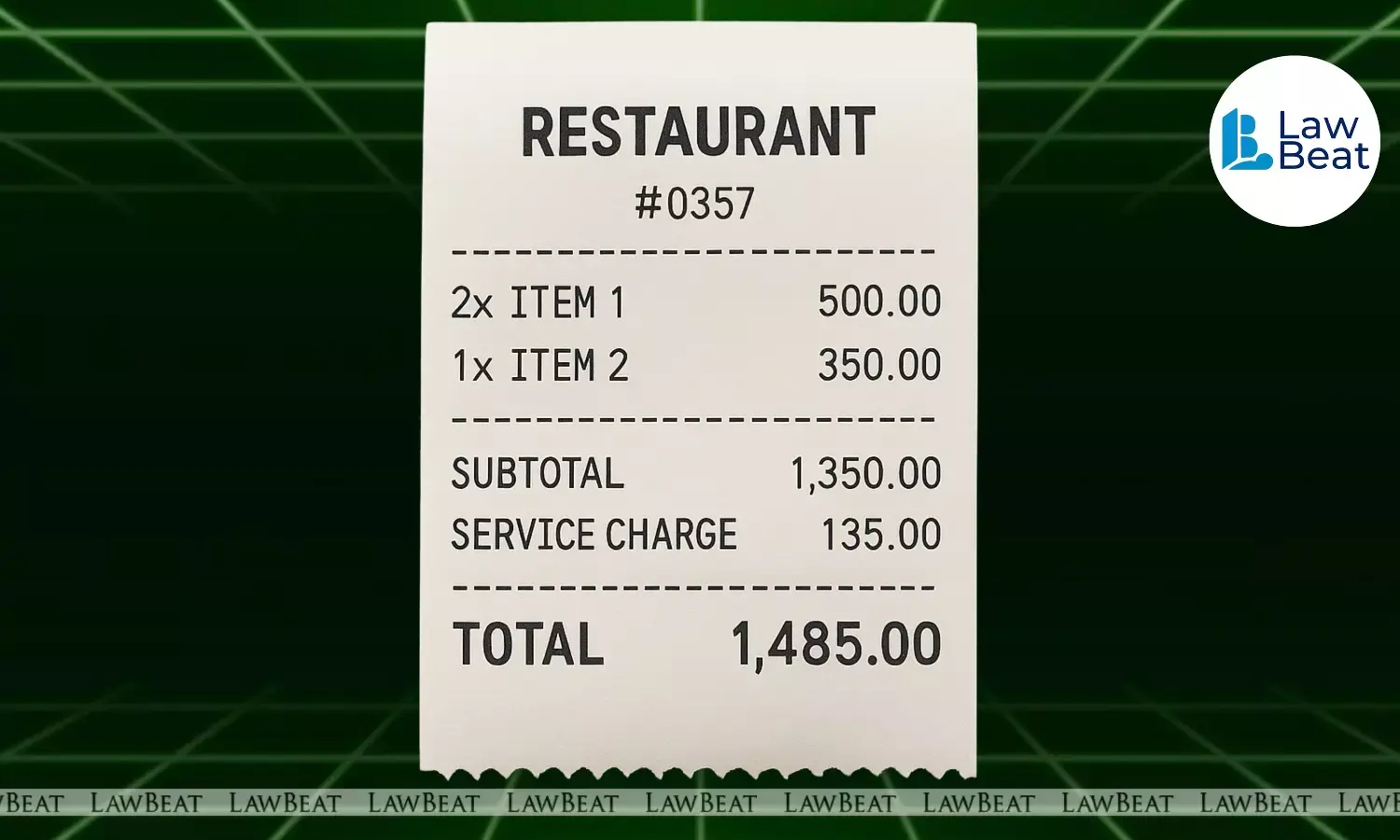Restaurants Challenge Service Charge Ban: Delhi HC Hearing Underway

Service Charge
The Delhi High Court on Friday, 22 August, heard an appeal filed by the National Restaurant Association of India (NRAI) and the Federation of Hotels and Restaurant Associations of India (FHRAI) against a single-judge ruling that held service charge to be a voluntary payment by customers and not a compulsory levy.
A division bench comprising Chief Justice D.K. Upadhyaya and Justice Tushar Rao Gedela heard submissions from Additional Solicitor General Chetan Sharma, appearing for the Central Government, as well as Senior Advocate Sandeep Sethi, representing the NRAI.
The single judge bench of the Court had upheld the Central Consumer Protection Authority (CCPA) guidelines issued on July 4, 2022, which explicitly prohibit the automatic or default inclusion of service charges, making their payment optional, and forbidding their collection under any alternative nomenclature.
During the hearing today, Chief Justice D.K. Upadhyaya asked the senior counsel appearing for the restaurant bodies, “What, according to you, are the directions contained in the guidelines for restaurants that are offensive?”
In response, Senior Advocate Sandeep Sethi, representing the NRAI, submitted, “The direction which says that I cannot levy a service charge and that it is entirely based on the voluntary decision of the customer, whether he wants to pay or not. Even if a restaurant clearly states in its menu that a service charge will be levied, the guidelines say it cannot be enforced, and non-compliance may invite prosecution.”
Hearing this, the Court clarified that it was not a case of prosecution. The District Magistrate can only investigate and furnish a report to the CCPA. The CCPA itself is not empowered to prosecute restaurants, adding that while the CCPA is empowered to initiate certain civil actions, it does not entail any criminal action.
Sethi further contended that the CCPA, established under the Consumer Protection Act, 2019, lacks adjudicatory powers and that levying a service charge does not amount to an unfair trade practice. He stressed that dining at a restaurant is a contractual relationship and that customers are free to choose another restaurant if they disagree with the service charge policy.
“It is a free country. If a customer does not wish to pay a service charge, they are free to move to another restaurant and not avail my services,” Senior Advocate Sandeep Sethi submitted.
The counsel further emphasised that restaurants are required to pay GST on service charges as well. Taking note of this, the bench directed that a counsel from the GST department be present at the next hearing to provide necessary clarifications.
Appearing for the Centre, ASG Chetan Sharma argued that despite the High Court’s earlier ruling, restaurant bodies continue to levy service charges.
Court then raised a pointed question: “Why should restaurants that already charge above the MRP of food and beverages additionally impose service charges on customers?”
Chief Justice Upadhyaya added, “Under the Legal Metrology Act, no one is entitled to charge over and above the MRP. Then why are you charging a service charge?”
In response, Senior Advocate Sandeep Sethi submitted that a service charge is levied for the services rendered by a restaurant to its customers. “There is no problem in specifying. The only question is whether I can charge a service charge. The top court has said it is permissible,” he argued.
Taking the example of bottled water, the Chief Justice remarked: “You go to a restaurant and the menu displays a water bottle for Rs 100. You buy the bottle, you stay there, enjoy the ambience, and then you are given a bill that contains Rs 100 for food and Rs 10 as service charge. If you cannot sell the bottle above Rs 20 MRP, then what are you charging the extra Rs 80 for?”
He further added: “That means you are charging under three different heads—one for food, second for ambience, and third for service. Will providing ambience not already be included in the services you are providing?”
Concluding the day’s hearing, the court noted that Sethi’s submissions remained inconclusive. The matter has been listed for further hearing on September 22.
Single Judge Ruling
In March this year, the single judge bench of the High Court held that a service charge is a voluntary payment made by the customer and cannot be made mandatory or compulsory. In doing so, the court rejected petitions filed by the National Restaurants Association of India (NRAI) and the Federation of Hotels and Restaurants Association of India (FHRAI), in which they contested the guidelines issued by the Central Consumer Protection Authority (CCPA).
The bench of Justice Prathiba M. Singh held, “Service charge or TIP as is colloquially referred, is a voluntary payment by the customer. It cannot be compulsory or mandatory”.
Rejecting the petitioners’ contention that the guidelines violated their rights under Article 19(1)(g) of the Constitution, the single judge observed that these rights were subject to reasonable restrictions under Article 19(6). In balancing the rights of restaurant owners with consumer protection, the Court held that while establishments had the right to set prices, imposing a mandatory service charge remained unjustified. Applying the doctrine of proportionality, the Court upheld the guidelines as reasonable and necessary for consumer protection.
The petitioners had argued that service charges formed part of a contractual agreement, as customers were informed through menu cards. However, the Court rejected this argument, reasoning that consumers primarily focused on food selection and might not notice such charges. It ruled that mandatory service charges were misleading and constituted an unfair trade practice.
Ultimately, the Court upheld the validity of the CCPA guidelines, ruling that mandatory service charges violated consumer rights. It directed establishments to incorporate service costs into product prices instead of levying separate charges. The Court dismissed the petitions, imposing costs of ₹1 lakh each, payable to the CCPA for consumer welfare.
Case Title: National Restaurant Association v. Union Of India
Hearing Date: 22 August 2025
Bench: Chief Justice D.K. Upadhyaya and Justice Tushar Rao Gedela
